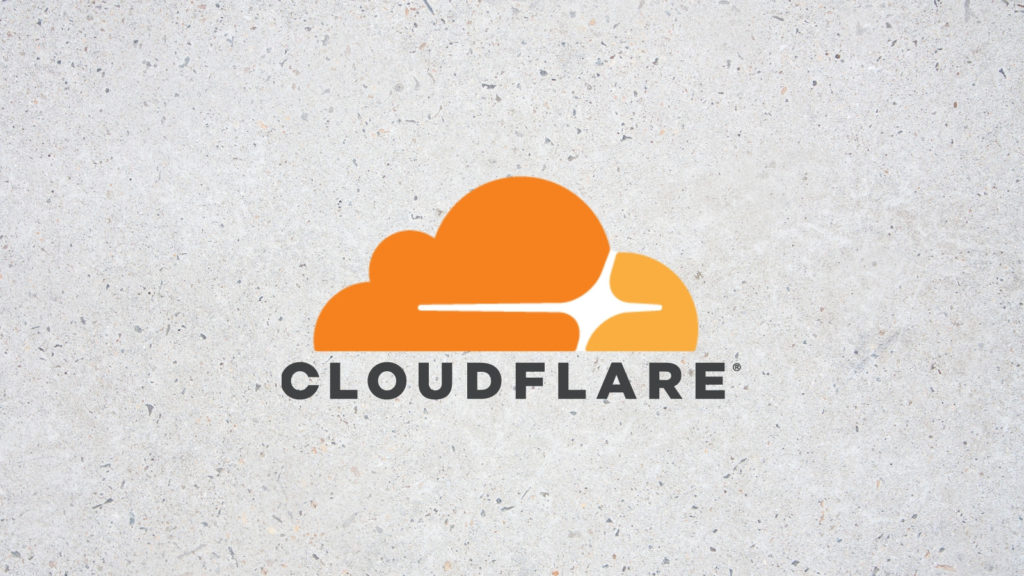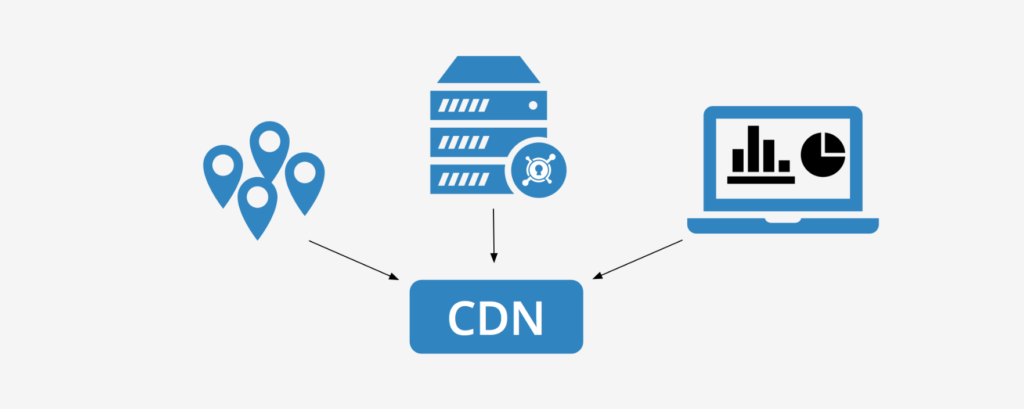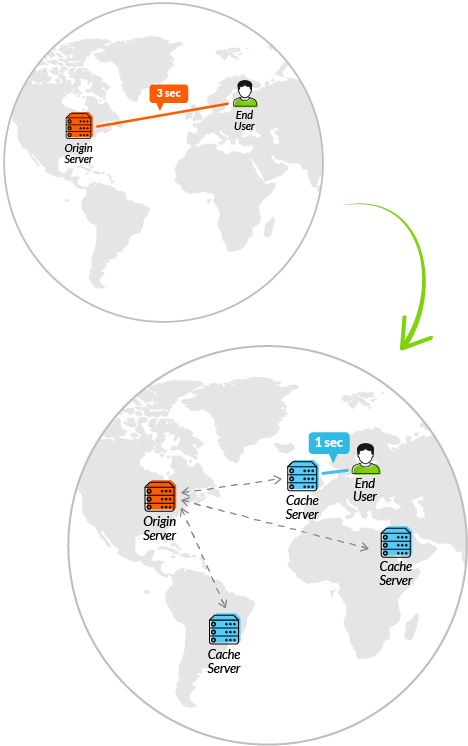
Table of Contents
How Cloudflare’s CDN Speeds up Websites
Do you hate slow Internet? Me too. As does everyone else.
Thankfully CDNs (Content Delivery Network) exists. They’re offered by most domain registrars, like 101domain—they are everywhere whether we know it or not.
They are behind everything we consume, whether it be behind the character of a text or an image pixel or a movie frame. And they are so embedded into our daily Internet activities like scrolling through Facebook, reading news articles, online shopping, or watching YouTube videos.
Below you will find out why CDNs are so essential and pertinently used.
What is Cloudflare?

Cloudflare, web infrastructure and website security company, provides several key services. Cloudflare secures content delivery network services, DDoS mitigation, Internet security, and distributed domain name server services.
To simplify, their main goal is to help build a faster, safer Internet. Born out of the desire to combat cybercrime (an increasing issue of the Internet today), they track malicious behavior, actively fighting against it by acting as a security shield and preventing any attacks on a website or application. Not only that, Cloudflare blocks DDoS floods, too.
In the beginning, Cloudflare experimented with different processes. For one, they looked to lower latency and lessen the time it takes to send information from one point to another on the Internet through its system. In doing this, they added advanced caching processes which then removed unwanted and unneeded traffic from customers’ websites. This includes bots, for instance, which are responsible for a good majority of the malicious activity found on websites. Bots are often used to scrape data from websites without permission so it can be reused to give a boost in competitive leverage.
To build a better Internet, Cloudflare first offered CDN services, which you will learn about in the next section.
What is a CDN?

It’s safe to say everyone hates slow loading times. Now, this is where a CDN comes in handy.
Without a CDN (which stands for Content Delivery Network), every single end-user request must be responded to by the content origin servers. When this happens, there’s a heavy (huge emphasis on heavy) increase in traffic to the origin and subsequent load. This results in increasing opportunities for origin failure.
A CDN is a highly distributed platform of servers, and it’s most esteemed purpose is that it minimizes delays in loading web page content. In fulfilling its purpose, a CDN reduces the distance between the server and the user.
A CDN is a benefit for all, and thank goodness it exists. It benefits the content provider and the end-users in part, offloading traffic from content servers, and improving our web experience as a whole.
How does a CDN work?
Now that you know what a CDN is, it’s important to understand the true essence of it: it’s a form of caching technology.
A CDN stores a cached version of a website’s content in several geographical locations. These geographical locations are also known as points of presence or PoPs. A number of caching servers are enlisted in each PoP, and these caching servers are most vital for content to be delivered to a user within its proximity. Thus, a CDN minimizes the distance between the user and the website server.
Simply put, content coverage is spread out with a CDN, putting your website’s content all over the place for any Internet user to quickly find.
Here’s a visual of how it works:

What does Cloudflare’s CDN do? Does it really speed things up?
Buckle up! Cloudflare’s CDN capabilities will blow you through the roof (kidding, but also not.)
It’s “trusted by over 20 million Internet properties, … provid[ing] a scalable, easy-to-use, unified control plane … deliver[ing] security, performance, and reliability for on-premises, hybrid, cloud, and SaaS applications,” according to their website.
There are numerous benefits to the popularity of Cloudflare’s CDN. Moreover, all of these benefits are largely dependent on the size and needs of Internet property.
Thankfully, website load times are vastly improved! Content is distributed closer to website visitors using a nearby CDN server. This enables the visitor’s experience to greatly improve by implementing faster page loading times. As anyone knows, slow-loading websites are a huge bummer, and they more often than not deter us away from using them. When this happens, we’re prone to click away and find what we need elsewhere. But with a CDN, bounce rates (a percentage representing the visitors who enter a website then leave) are reduced and the duration of time people spend on any given website increases.
In short, people will stay on a website given that it’s faster.
Additionally, Cloudflare’s CDN works to reduce bandwidth costs, which are the consumption costs for a website’s hosting and the forerunning expense. As mentioned previously, Cloudflare’s CDN being the form of caching technology that is is, it’s able to reduce the requirements of data an origin server must attain, reducing hosting costs.
Content availability and redundancy is also increased. Naturally, CDN’s handle more web traffic because of their optimal nature, so they end up standing against the trials and tribulations of hardware failure better than most origin servers could. This is a huge benefit, as increased or huge amounts of traffic or hardware failures make a way in interrupting a website’s normal day-to-day functions.
Website security is vastly improved, too. By way of DDoS migration, a CDN improves security through optimizations like security certificates. CDNs protect against DDoS attacks, ensuring no serious impact on a business’s image or reputation. Trust is needed in order to do business with anyone, especially on the Internet like whenever customers enter their credit card numbers to make a purchase. With CDNs, they add an extra level of security with cloud security, stopping attacks before they ever reach a business’s data center. Moreover, CDNs take on a load of traffic entering your website, ensuring it keeps up and running and that your website stays safe and sound against any DDoS attacks.

Now to answer the second part of the question: yes, Cloudflare’s CDN really does speed things up.
By now you should know a CDN helps to reduce web page load times, but how it does this is a cakewalk.
It reduces the distance between users and website resources, combating the need for connecting to a website’s initial origin server wherever it may be, and instead of locating a geographically closer data center. This allows users to connect on the basis of less travel time. So, in essence, this leads to faster service.
Comparatively, load balancing and solid-state hard drives help data in reaching a user faster (among other hardware and software optimizations.)
Conclusively, a CDN uses minification and file compression which works to reduce file sizes and the amount of data transferred. For quicker load times, you must know, smaller file sizes are a must.
And lastly, websites using TLS or SSL certificates are sped up by the optimization of connection used and reused in enabling a TLS false start. TLS/SSL certificates encrypt information sent over the Internet, both providing identity assurance for the customer as well as ensuring websites can be trusted and are safe to do business with, according to cheapsslshop.com.
So. . .
Do I need Cloudflare’s CDN for my website? If you really value speed, then yes. Because of Cloudflare’s CDN, your website’s availability, security, and performance are ensured. Cloudflare’s CDN is an option worth considering.







